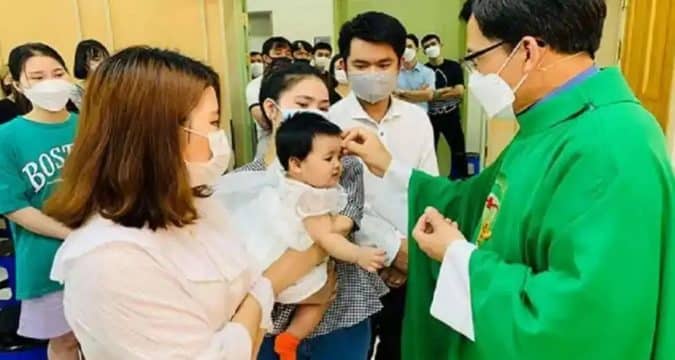
SEOUL (UCAN): The Committee for Life of the Archdiocese of Seoul. South Korea, criticised the National Human Rights Commission for proposing to revise the country’s Assisted Reproductive Technology Ethics Guidelines’ to allow single, unmarried women to have children through in-vitro fertilization [IVF]. The proposal was made to the Korean Society of Obstetrics and Gynaecology, a national association of doctors.
Pro-life activists oppose the procedure stating that it “commercialises childbirth” and “treats the fetus as a commercial property.”
“Some embryos are implanted successfully, only healthy embryos are left among them, and the rest are aborted,” Catholic Peace Broadcasting Corporation quoted Father Park Jung-woo, secretary of the committee, as saying on July 12.
“It’s a matter of sorting out some life. The remaining embryos are stored in the freezer and then destroyed or sent to the lab. This is not ethical,” Father Park said.
Earlier in July, the National Human Rights Commission had said that it was ‘discriminatory’ to restrict IVF procedures for unmarried women.
“We must recognise individual life and diversity and guarantee a woman’s right to self-determination,” the commission stated.
Some embryos are implanted successfully, only healthy embryos are left among them, and the rest are aborted
Father Park Jung-woo
This came after several single women lodged complaints with the commission saying that they wished to undergo IVF treatment, but that doctors had turned them down citing existing laws.
South Korea’s Bioethics and Safety Act mandates that anyone seeking IVF treatment must obtain consent from their legal spouses, which effectively prohibits single women from getting treatment. Meanwhile, receiving donor sperm is only allowed in cases where the husband is sterile or has a serious genetic disease.
The debate over IVF for single women was ignited in South Korea in late 2020 after Sayuri Fujita, a Japanese television personality in South Korea, underwent the procedure in Japan and gave birth to a son on 4 November 2020.
This reportedly caused a stir in South Korea with many in society calling for a rethink of existing laws as South Korea is facing a demographic crisis with the lowest birth rates in the world and a rapidly increasing elderly population.
The country of 51.8 million, had the world’s lowest birth rate of 0.84 in 2020, the Korean Statistical agency reported last year.
In 2019 about 30.2 per cent of households were single-parent an increase on 29.8 per cent the previous year.
In April 2021, South Korea’s Ministry of Gender Equality and Family unveiled its fourth Basic Plan for Healthy Families [2021 to 2025], which for the first time sought to provide financial and institutional support to families including out-of-wedlock unions and children.
Giving birth outside of marriage is considered taboo in the community which follows Confucian traditions and patriarchal family structures.








